Moral Damages Claim in Investment Arbitration
Introduction
Compensation for moral damages in disputes to be resolved before an arbitral tribunal is a substantial topic. This Article covers the issue of moral damages claims in investment arbitration in light of significant arbitral awards ruled on this matter.
In some cases, it is harder for the decision-makers to rule on compensation for moral damages due to its subjective nature. It is often argued that the distinction between material and moral damages blurs in some circumstances[1]. Below, the details of moral damages claims in investment arbitration will be examined under two sections according to the claimant of the moral damages which may be either the investor or the host state.
The Cases in Which the Investor Requests Compensation for Moral Damages
It is observed that, more often investors request compensation for their moral damages from the host states before arbitral tribunals. However, this request is very rarely accepted.
Desert Line Projects LLC v. Republic of Yemen
The Desert Line LLC v. Yemen is a major investment dispute in which the investor requested compensation for its moral damages[2]. The dispute stemmed from the physical duress, coercion and intimidation exercised by the Yemen forces on the officials of the Omani company Desert Line LLC during asphalt road construction. In 2005, the Claimant Desert Line LLC commenced proceedings before the International Center for Settlement of Investment Disputes (“ICSID”) and alleged violation of the fair and equitable treatment provision in the Yemen Republic - Oman Bilateral Investment Treaty (“BIT”)[3].
The arbitral tribunal concluded that, the psychological suffering experienced by the Desert Line’s officers derived from the threatening and harassment by the Yemen armed forces and these illegal actions have caused loss of credit and reputation for the Claimant[4]. Hence, the arbitral tribunal granted the moral damages claim, including loss of reputation, which became the first example of an award accepting moral damages claim[5].
Pey Cassado v. Republic of Chile
Another notable case in which the arbitral tribunal assessed the moral damages claim is Pey Cassado v. Republic of Chile[6]. The dispute had occurred due to the confiscation of a Chilean newspaper in 1973 by the military junta in which the Claimant Pey Cassado was a shareholder. The Claimant returned to Spain after a military coup and commenced arbitral proceedings before the ICSID in 1997 and alleged violation of the Chile – Spain BIT.
The arbitral tribunal who granted material damages claim to the Claimant, refused to award any compensation for the moral damages claim by stating that the Claimant failed to provide sufficient proof for evaluation of moral damages[7]. The arbitral tribunal added that, the ruling on the compensation of material damages against the Rupublic of Chile, has provided sufficient moral satisfaction for the moral damages claimed to be suffered.
This award clearly reveals the relativity of moral damages concept in the eyes of the tribunals in addition to the possibility of widening the scope of granting material damages in a way to cover the moral sufferings as well.
Lemire v. Ukraine
Lemire v. Ukraine is a notable example of investment disputes in which the arbitral tribunal assessed the moral damages claim and set forth several principles to grant so[8]. The dispute had stemmed from the accusations of an American radio broadcasting investor Claimant Lemire who affirmed that the Ukrainian broadcasting authorities rejected his new radio frequency applications unfairly. Hence, the Claimant commenced arbitral proceedings before the ICSID in 2006, alleged violation of the USA – Ukraine BIT and requested compensation for his material and moral damages.
In its 2010 dated initial award on jurisdiction, the arbitral tribunal who referred to the Desert Line award had concluded that the investors are eligible to claim moral damages in light of the BITs. However, the tribunal who accepted the material damages claim refused to grant compensation for moral damages claim in its 2011 dated final award[9] by reasoning that the material facts of the dispute do not constitute “exceptional circumstances”[10]. Accordingly, the tribunal ruled that the exceptional circumstances under which an investor may be awarded moral damages are:
- “the State’s actions imply physical threat, illegal detention or other analogous situations in which the ill-treatment contravenes the norms according to which civilized nations are expected to act;
- the State’s actions cause a deterioration of health, stress, anxiety, other mental suffering such as humiliation, shame and degradation, or loss of reputation, credit and social position; and
- both cause and effect are grave or substantial.[11]”
The tribunal concluded that even if the treatment of the Ukrainian authorities may be considered as loss of reputation, it still would not give rise to moral damages since the damage did not meet the three standards required.
The Desert Line and Pey Cassado awards played vital role in the assessment of the tribunal. The moral damages experienced in this case were not found to be as grave as the one in the Desert Line and the material damages compensation awarded was found to be sufficient enough to cover both moral and material injuries faced with a similar reasoning given in the Pey Cassado award[12]. This award plays a vital role in order to observe the mentality of the arbitral tribunals related to the moral damages claims.
The Cases in Which the Host State Requests the Compensation the Moral Damages
The moral damages claim in the investment disputes may be reviewed from another aspect by the case law in which the Republic of Turkey as the host state requested compensation of its damages.
The main distinction of these awards is that, the host state grounded its moral damages allegations on the investor’s misconduct, namely the “abuse of process” during the arbitration proceedings.
Europe Cement v. the Republic of Turkey
Europe Cement v. the Republic of Turkey is a dispute that arose between a Polish company Europe Cement and the Republic of Turkey, in which the Claimant Europe Cement commenced arbitral proceedings before the ICSID by alleging violation of the Energy Charter Treaty[13] by the Republic of Turkey[14].
The dispute had occurred due to the damages claim of the Claimant based on the confiscation of the property and annulment of the concession contracts of Cukurova Elektrik A.S. (“CEAS”) and Kepez Elektrik Turk A.S.’nin (“Kepez”) by the Republic of Turkey. The Claimant who alleged to own shares of CEAS and Kepez commenced arbitral proceedings before ICSID.
However, the Arbitral Tribunal concluded that the evidence provided by the Claimant are counterfeit, which had shown that the Claimant had never been an investor, hence the arbitral tribunal rejected the dispute due to incapacity. The notable part of the dispute is that, the Republic of Turkey as the Respondent requested compensation of its moral damages due to unlawfully commenced proceedings by the Claimant in bad faith which had harmed its host state reputation. However, the moral damages claims of the Respondent were rejected by the tribunal[15].
The tribunal grounded the rejection of the moral damages claim by stating that leaving the arbitration costs on the Claimant compensates the damage it caused by deceit and abuse of process, that ruling on moral damages in addition to these would be excessive[16]. Like others, in this award, the tribunal examined the existence of the exceptional circumstances stated in the Lemire award and concluded that they did not exist.
Cementownia v. the Republic of Turkey
The dispute between a Polish company Cementownia Nowa Huta SA (“Cementownia”) and the Republic of Turkey which was very similar to the Europe Cement v. the Republic of Turkey dispute, had occurred due to the damages claim of the Claimant Cementownia based on the confiscation of the property and annulment of the concession contracts of CEAS and Kepez by the Republic of Turkey. The Claimant who alleged to own shares of CEAS and Kepez commenced arbitral proceedings before the ICSID by claiming that it faced damages due to the illegal actions of the Republic of Turkey[17].
Parallel to the Europe Cement award, the arbitral tribunal concluded that the Claimant abused the process as the evidence provided was counterfeit, which had shown that the Claimant had never been an investor, hence the arbitral tribunal had no capacity to solve the dispute[18].
Although the tribunal explicitly expressed that it is possible to award for the compensation of moral damages under the ICSID Convention, it did not award so by reasoning that the Republic of Turkey did not face exceptional circumstances as the ones faced in the Desert Line dispute and the abuse of process which was stated as the basis of the moral damages claim was too wide to rule for such compensation of moral damages.
Conclusion
The compensation of moral damages faced in the investment disputes are claimed by both investors and host states.
Although the ICSID Convention does not prohibit claiming moral damages, arbitral tribunals rarely award so. The main principles required are the exceptional circumstances clarified in Lemire award which was given in consideration of the Desert Line award.
Among the case law of the investment disputes before the arbitral tribunals, two awards shine out in which the Republic of Turkey requested compensation for the moral damages faced as the host state. These disputes have distinctive character as the moral damages were claimed by the host state rather than the investor and the damages are grounded on the abuse of process faced during the arbitral proceedings rather than an illegal action arose during the investment process.
[1] Patrick Dumberry, “Satisfaction as a Form of Reputation for Moral Damages Suffered by Investors and Respondent States in Investor-State Arbitration Disputes”, Journal of International Dispute Settlement, 2012, p.5.
[2] Desert Line Projects LLC v. Republic of Yemen, ICSID Case No. ARB/05/17, Award, February 6th, 2008, available at: https://icsid.worldbank.org/en/Pages/cases/casedetail.aspx?CaseNo=ARB/05/17, (“Desert Line Kararı”)
[3] Matthew Parish / Annalise Newlson / Charles Rosenberg, “Awarding Moral Damages to Respondent States in Investment Arbitration”, Berkeley Journal of International Law, 225, 2011, p.232.
[4] Desert Line Award, par. 290.
[5] Bernd Ehle / Martin Dawidowicz, “Chapter 10: Moral Damages in Investment Arbitration, Commercial Arbitration and WTO Litigation”, Jorhe A. Huerta – Goldman / Antoine Romanetti, WTO Litigation, Investment Arbitration and Commercial Arbitration, Global Trade Law Series, Vol. 43, Kluwer Law International 2013, p.302; Marc Allepuz, “Moral Damages in International Investment Arbitration”, Spain Arbitration Review, Vol. 2013, p.7.
[6] Victor Pey Cassado and President Allende Foundation v. Republic of Chile, ICSID Case ARB/98/2, Award May 8th, 2008, available at: https://icsid.worldbank.org/en/Pages/cases/casedetail.aspx?CaseNo=ARB/98/2 (“Pey Cassado Award”). The Salvador Allende Foundation was donated by the 90% of Mr. Pey Cassado’s shares, hence was party to the dispute.
[7] Pey Cassado Award, par.243; Dumberry, p.20; Ehle / Dawidowicz, p. s.305.
[8] Joseph C. Lemire v. Ukraine, ICSID Case No. ARB/06/18, Award on Jurisdiction and Liability: January 14th, 2010, available at: https://icsid.worldbank.org/en/Pages/cases/casedetail.aspx?CaseNo=ARB/06/18; Antoine Champagne, “Moral Damages Left in Limbo”, McGill Journal of Dispute Resolution, 2015, p.25.
[9] ICSID Case No. ARB(AF)/98/1, Award: March 28th, 2011, available at: https://icsid.worldbank.org/en/Pages/cases/casedetail.aspx?CaseNo=ARB(AF)/98/1;
[10] Dumberry, p.22.
[11] Lemire Award, par. 333.
[12] Lemire Award, par. 339.
[13] Published in the Official Gazette dated July 12th, 2000 numbered 24107.
[14] Europe Cement Investment and Trade S.A. v. Republic of Turkey, ICSID Case No. ARB(AF)/07/2, Award: August 13th, 2009, available at: https://icsid.worldbank.org/en/Pages/cases/casedetail.aspx?CaseNo=ARB(AF)/07/2; Marc Allepuz, p. 9.
[15] Matthew Parish / Annalise Newlson / Charles Rosenberg, “Awarding Moral Damages to Respondent States in Investment Arbitration”, Berkeley Journal of International Law, 225, 2011, p.236; Champagne, p.31.
[16] Dumberry, p..27.
[17] Cementownia Nowa Huta S.A. v. the Republic of Turkey, ICSID Case No ARB (AF)/06/2, Award: September 17th, 2009, available at: https://icsid.worldbank.org/en/Pages/cases/casedetail.aspx?CaseNo=ARB(AF)/06/2.
[18] Ehle / Dawidowicz,, s.310.
All rights of this article are reserved. This article may not be used, reproduced, copied, published, distributed, or otherwise disseminated without quotation or Erdem & Erdem Law Firm's written consent. Any content created without citing the resource or Erdem & Erdem Law Firm’s written consent is regularly tracked, and legal action will be taken in case of violation.
Other Contents

Emergency arbitration addresses the need for interim protection before the arbitral tribunal is constituted in institutional arbitrations. Arbitral institutions establish short timeframes to ensure parties can obtain interim relief quickly. For example, the International Chamber of Commerce (“ICC”) requires that the emergency...

International arbitration remains the preferred mechanism for resolving complex cross-border disputes. Yet despite its advantages—neutrality, enforceability, flexibility—arbitration is frequently criticized for being too slow, too expensive, and too procedurally heavy. Often, parties proceed through hearings and...

For arbitral awards rendered in international commercial arbitration to produce legal effects in foreign jurisdictions, they must be subjected to proceedings for “recognition” and “enforcement.” This process is governed by the New York Convention as well as by the provisions of the Law on Private International Law...

Arbitrability, the determination of whether a specific subject matter can be resolved through arbitration, constitutes a fundamental aspect of arbitration within the scope of international commercial dispute resolution. This concept draws a delicate balance between party autonomy—a fundamental principle of arbitration...

The recognition, enforcement, and annulment of foreign court and arbitral awards in Türkiye are processes in which public policy emerges as one of the most critical criteria for review, both in theory and in practice. The Court of Cassation decisions determine the direction of case law regarding the scope and...

As is well known, the action for annulment of objection is a special type of lawsuit regulated under Article 67 of the Turkish Execution and Bankruptcy Law No. 2004 (“EBL”). The primary objective of this action is to nullify a debtor’s objection to execution proceedings. Despite its procedural function of facilitating...
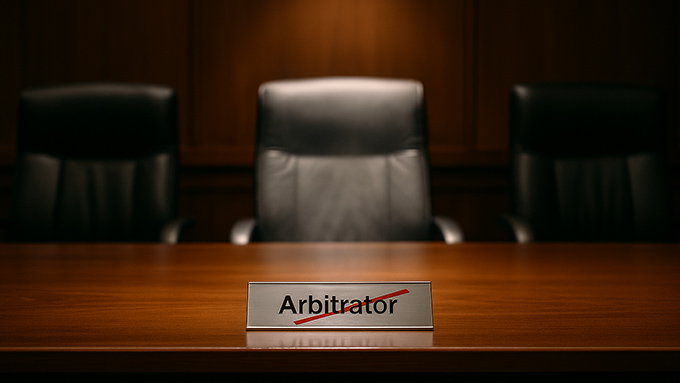
On 16 December 2024, the London Court of International Arbitration (“LCIA”) released its third batch of challenge decisions covering the period from 22 July 2017 to 31 December 2022. The LCIA has also issued a detailed commentary that identifies key legal themes and analytical trends, offering practitioners...

The International Chamber of Commerce (“ICC”) has published its report on the dispute resolution statistics for 2023 (“Report”) , shedding light on the evolving landscape of international arbitration...

Syndicated loans undoubtedly hold a significant position among global financing models. In 2023 alone, 3,655 syndicated loans were provided to companies in the US, with their total value reaching USD 2.4 trillion...

Preliminary attachment refers to the temporary seizure of a debtor's assets to secure a creditor's claim. While it serves as a vital instrument for safeguarding the rights of creditors, it is subject to specific and stringent conditions under Turkish law to prevent any potential misuse...

One of the most important reasons for parties to choose arbitration is the opportunity to freely choose their arbitrators. This freedom granted to the parties also distinguishes arbitration from proceedings before state courts, where the parties are deprived of the power to determine the judges who will conduct the...

The 6th Civil Chamber of the Court of Cassation ruled on October 12, 2022, that national courts have jurisdiction over objections to provisional measures in international arbitration disputes...

The declaration of intent to resolve disputes through arbitration is the fundamental constituent element of an arbitration agreement. To speak of a valid arbitration agreement, the parties' intention to arbitrate must emerge in a way that leaves no room for dispute...

In the wake of the evolving dynamics of commercial transactions, the Netherlands Arbitration Institute Foundation (NAI) announced new arbitration rules . 2024 NAI Arbitration Rules are in force as of 1 March 2024 and will be applicable on proceedings filed on or after this date...

With the global shift to online activities, domain names play a crucial role in identifying businesses. It is more common than ever for a domain name to be registered that is confusingly similar to a trademark or service mark...
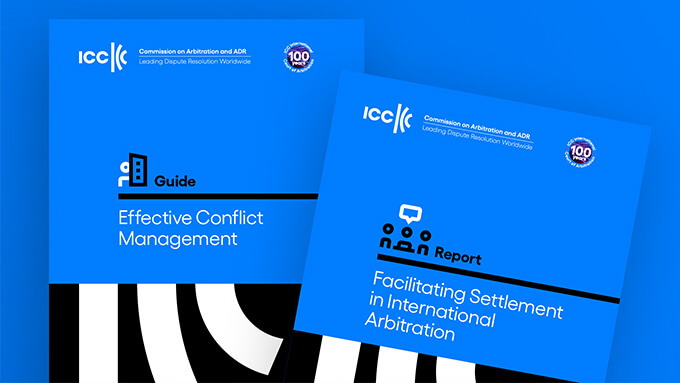
The ICC Commission on Arbitration and ADR (“Commission”) published a new guide and report with the aim to increase awareness on alternative dispute resolution (“ADR”) mechanisms to prevent disputes and strengthen the relationship between all stakeholders.The Guide on Effective Conflict Management...

Mergers and Acquisitions (“M&A”) are restructuring of companies or assets through various types of financial transactions, such as mergers, acquisitions, purchase of assets, or management acquisitions. This Newsletter article covers M&A disputes being solved before arbitral tribunals.

In the context of arbitration practice, the principle of revision au fond means that the courts can not examine the merits of a dispute when reviewing an arbitral award. This principle is most commonly encountered in set aside and enforcement proceedings. An arbitral award is evidence of the parties’ willingness...

Under Turkish law, parties may agree on the settlement of disputes that have arisen or may arise, regarding the rights that they can freely dispose of, by arbitration. However, disputes which are not subject to the will of parties, such as the disputes relating to in rem rights of immovables, bankruptcy law...
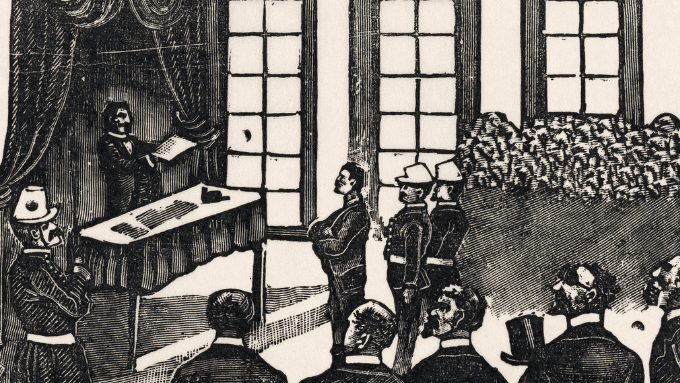
On 4 September 2020, a research project “Does a Right to a Physical Hearing Exist in International Arbitration?” was launched by an International Council for Commercial Arbitration (“ICCA”) taskforce. Due to the Covid-19 pandemic, many arbitration hearings were held online. Many institutional rules...

Dubai International Arbitration Center amended its Arbitration Rules on 25 February 2022. The 2022 Arbitration Rules were published on 2 March 2022 and came into effect on 21 March 2022. The Rules will be applied to arbitrations that are filed after 21 March 2022; unless parties agree otherwise...
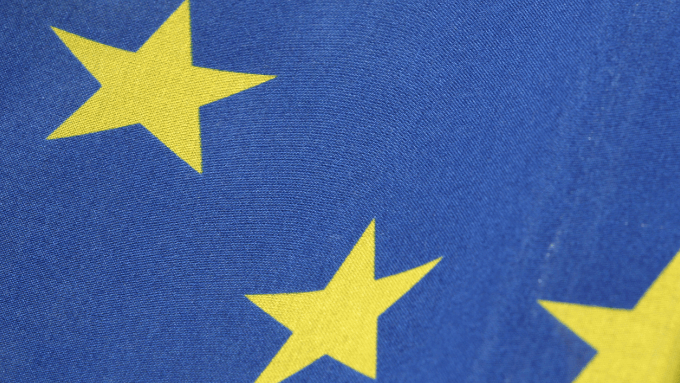
In the aftermath of the Achmea decision, controversies on intra-EU arbitrations continue. Most recently, the Paris Court of Appeal has annulled two arbitral awards rendered against Poland. Meanwhile, the Higher Regional Court of Berlin has refused to declare that an Irish investor’s ICSID claim...


Under Turkish law, the legal remedy that can be applied against arbitral awards is an annulment action. Law on International Arbitration No. 4686 (“IAL”) finds its application area in arbitration proceedings where Turkey is the place of arbitration...

It is well known that following a decision of the Court of Justice of the European Union, problems arose related to arbitration of intra-EU disputes, and particularly arbitration under the Energy Charter Treaty...
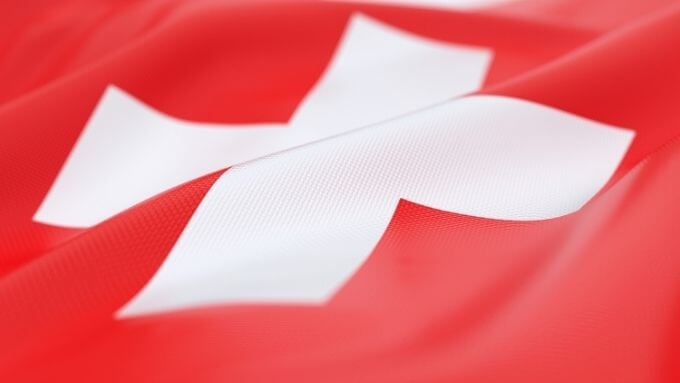
Arbitration in corporate law contains controversial elements in many respects, especially the issue of arbitrability. Even in legal systems where these disputes are considered to be arbitrable, uncertainties remain on whether an arbitration clause can be included in the articles of...





Arbitration has benifited from a great increase in the use of technology which has directly effected the conduct of proceedings. More particularly, with digitalization, the way that we conduct arbitration proceedings has been changed to reflect the current needs of parties, with an aim of increasing time...
































































